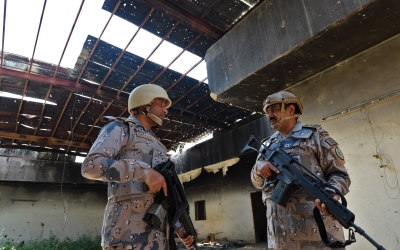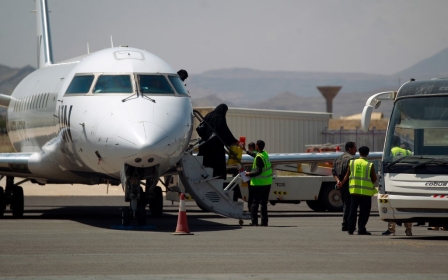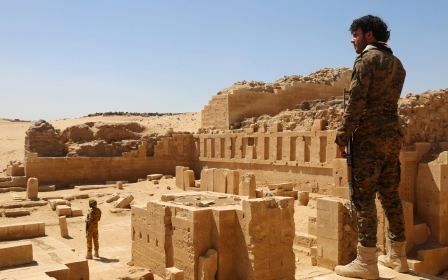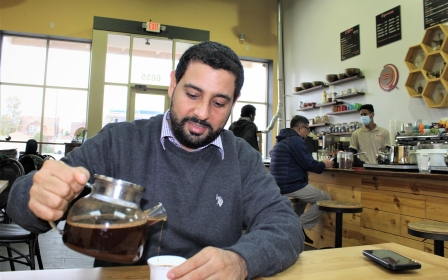Aid workers say US plans to blacklist Yemen's Houthis may cost innocent lives
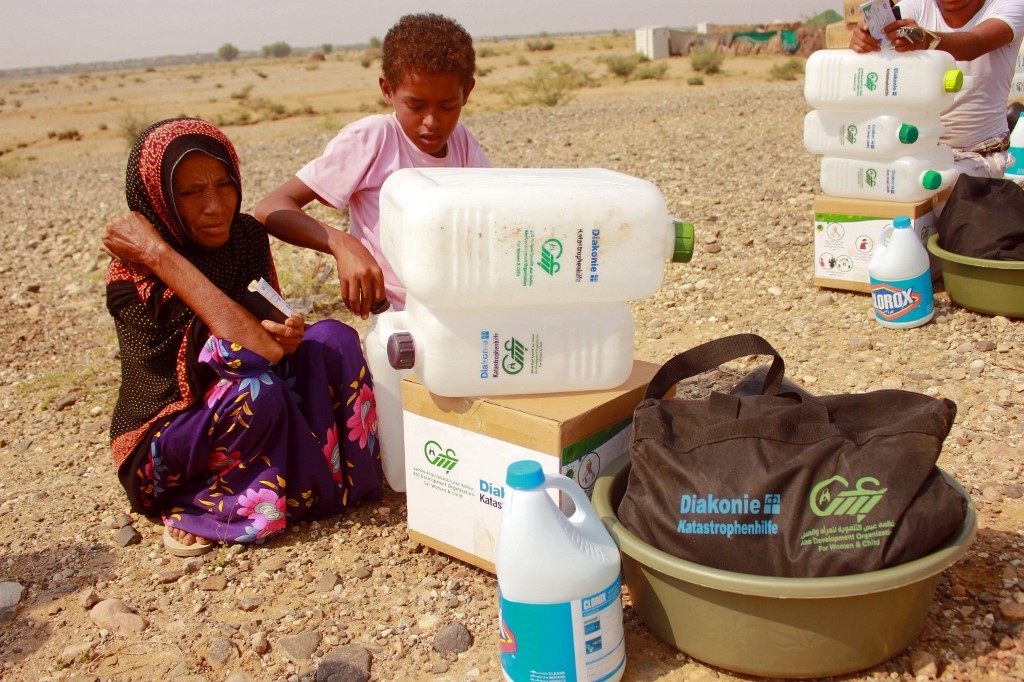
Humanitarian agencies say the possible designation of Yemen's Houthis as a foreign terrorist organisation by the United States may prevent life-saving aid from reaching remote areas of the war-torn country.
Washington considers the group, which controls northern Yemen and its most populated areas, as an Iranian proxy force.
Earlier this week, President Donald Trump's administration began preparing plans to blacklist the group as part of efforts to end the country's six-year war and place additional pressure on Tehran.
The option to designate the group a foreign terrorist organisation has come up multiple times since 2016, ultimately ending with the administration not doing so out of fear it would harm the UN-led peace process. Still, concerns have risen among humanitarian organisations that a decision is close, sources told Reuters.
Two sources told the news agency that a dozen US aid workers left the country this week. Others said an informal note had been sent to aid workers last week, in anticipation of potential safety concerns in Houthi-controlled areas.
Foreign Policy reported on Thursday that the UN sent a WhatsApp message to aid agencies this week, warning that the designation would take place and encouraging workers to "leave the North of Yemen as the implications are unknown".
"While it is not likely to be too harsh e.g. kidnapping it could result in restriction of movement. A list of those wishing to leave Sanaa to Aden or Addis on the Wednesday flight will be accommodated," the WhatsApp message said.
UN spokesman Stephane Dujarric declined to comment on the potential designation, but said there had been some "basic rotations of staff.
"The growing risk of famine in Yemen underlines the need for us to continue to have access, to continue to be able to conduct principled humanitarian assistance and reach all people who need it," Dujarric said.
Aid organisations fear the designation may criminalise their work, since the Houthis are the de facto civil authority in northern Yemen and humanitarian groups must go through them to carry out aid programmes, as well as working with Houthi ministries and local financial systems.
The Trump administration in March halted $73m in aid over fears that the Houthi movement was seizing control of the funds.
'Disincentivising aid donors'
Jan Egeland, head of the Norwegian Refugee Council, said that if the US government were to blacklist the Houthis, it should also issue a "general license" that allows aid groups to work with the rebels and provide much-needed aid to the Yemeni people.
"We must be able to negotiate access for our aid and protection of civilians with all sides to all conflicts," he said.
Aid workers also worry that a designation would have a disastrous impact on Yemenis' access to financial systems and remittances from abroad, and also complicate imports and raise the prices of goods even further.
'The US must be at the forefront of encouraging contributions to the international humanitarian response in Yemen, not disincentivising aid donors with the threat of additional harmful sanctions'
- Letter to Pompeo from US members of Congress
Eight members of Congress sent a letter to US Secretary of State Mike Pompeo on Thursday urging him to reconsider the designation.
"The heads of top humanitarian aid organizations - Oxfam America, Save the Children, Mercy Corps, CARE USA, and International Rescue Committee - warned that 'a designation of Ansar Allah could cause even greater suffering, given the number of people under its jurisdiction, its control over state institutions, and the already frightening levels of food insecurity and humanitarian need across Yemen'," the letter read.
"The US must be at the forefront of encouraging contributions to the international humanitarian response in Yemen, not disincentivising aid donors with the threat of additional harmful sanctions," it added.
The UN describes Yemen, already poor before the start of the conflict, as the world's biggest humanitarian crisis, with 80 percent of the population reliant on aid.
In recent months, the dire humanitarian situation has been compounded by the coronavirus pandemic, a deteriorating health infrastructure, economic decline, floods, escalating armed conflict and a severe aid funding shortage.
Middle East Eye propose une couverture et une analyse indépendantes et incomparables du Moyen-Orient, de l’Afrique du Nord et d’autres régions du monde. Pour en savoir plus sur la reprise de ce contenu et les frais qui s’appliquent, veuillez remplir ce formulaire [en anglais]. Pour en savoir plus sur MEE, cliquez ici [en anglais].


